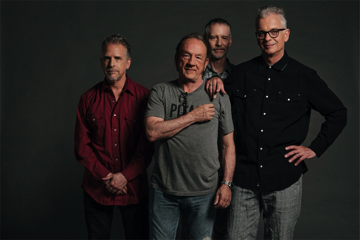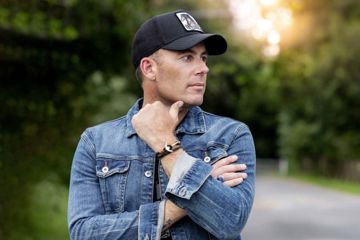Lose A Mile
"It’s nice to [push buttons]. I think it stems from the fact that we’re pretty isolated out in Phoenix, and not every cool – we’re not very trendy, hip people."

Despite a long and distinguished career that stretches back nearly three-and-a-half decades, Phoenix punk outfit Meat Puppets have only been to Australia once before – over two decades ago – and even that inaugural visit ended up a fittingly haphazard affair.
“I think it was '92, if I'm not mistaken – we were supposed to open for the Red Hot Chili Peppers, and then their guitar player [John Frusciante] quit,” recalls frontman and songwriter Curt Kirkwood. “We'd just gotten to Brisbane and our tour manager told us in the hotel, 'The tour's off, their guitar player quit,' so the promoter scrambled and rearranged the whole thing so we got to do a little tour of some smaller venues, and thankfully we got to see a bit of the country.”
This slapdash schedule wouldn't have bothered the unflappable Meat Puppets – as evidenced by Kirkwood's laissez-faire approach to their recent fourteenth album, Rat Farm.
“I intended to keep it simple, and I thought that maybe it could be a mad folk album where we pretended to play acoustic instruments but we'd do it electrically with big drums and see what happened,” he shrugs. “It was okay. I always just kinda get what I get – I'm not good at making exactly what I want and I don't really care too much. Part of the fun is just seeing where your little germ of an idea gets you to.”
Don't miss a beat with our FREE daily newsletter
Since the outset Meat Puppets' distinctive sound owed as much to country and psychedelic rock as it did the punk scene where they cut their teeth.
“We grew up around the horse-race track in Phoenix, so we grew up around country music – there was always Johnny Cash, Hank Williams, Buck Owens and the '60s country obsession for sure,” Kirkwood recalls. “That's what was on the radio in the car. Then we had The Beatles, and even they had a fair amount of country influence really if you look at it. Then rockabilly and all that stuff, even Ray Charles – country is a common denominator in all of it. It's a good way to be simple and not be folk.”
Their first six albums were released by hardcore stable SST Records, home to the likes of Black Flag and The Minutemen, and Meat Puppets ruffled plenty of feathers with their strange hybrid sound.
“We found our audience that way, for sure,” Kirkwood laughs. “At one point around [1984's] Meat Puppets II I remember thinking, 'Why are we getting all this stuff thrown at us by punk rockers?' We could play really fast and be completely nuts if we wanted, but I thought, 'It's supposed to be punk rock, so why would you try to please them?' It's kind of this weird paradox – if it's supposed to be 'punk' and 'fuck everything' why would you pander to it? So on Meat Puppets II we started off with a nice fast song and then went on to the most dirgy, folky crap I could think of – I'd bring out the Jackson Browne, Neil Young and Harry Chapin side of me. Even back to Bill Monroe and Hank Williams and stuff to really piss some people off – which it did.
“It's nice to [push buttons]. I think it stems from the fact that we're pretty isolated out in Phoenix, and not every cool – we're not very trendy, hip people – so it's like, 'Well this is our thing – too bad if you don't like it.'”
In time Meat Puppets II's outsider bent unsurprisingly inspired Kurt Cobain and found Curt and his bassist brother Cris on stage with Nirvana doing acoustic renditions of Plateau, Oh Me and Lake Of Fire on MTV Unplugged – a situation that ended up both a blessing and a curse as the ensuing fame and notoriety threw the band off its fragile axis.
“Primarily it was a blessing, even though it caused me trouble,” Kirkwood reflects. “It was our reaction to some of that stuff. For me myself it was great – it never bothered me – but it pulled a little bit of innocence away, and we'd been able to maintain that for a long time up until that point. By that time we were on a major label and they wanted hits. We got one hit song and then they wanted more hit songs, and I don't know what that is – I've never been able to sit down and go, 'Let's write a hit song.'
“I am what I am, and I feel lucky to be a musician at all. For me I just look back with fondness on the whole thing – mostly it was pretty amazing. And they're great versions of the songs – it's really nice to hear somebody that can sing that good do your stuff, that's all I can say.”







